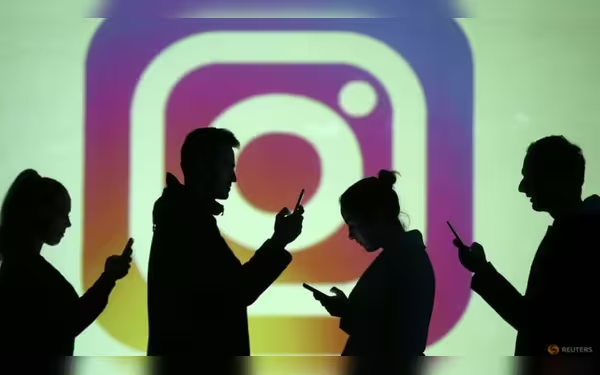Saturday, November 16, 2024 07:47 PM
Australia's Social Media Ban Proposal Sparks Teen Isolation Concerns
- Proposed ban may increase teen isolation and anxiety.
- Experts warn against severing vital social connections.
- Age verification trials considered as first step.
 Image Credits: channelnewsasia
Image Credits: channelnewsasiaAustralia's proposed social media ban raises concerns about increased isolation among teenagers, sparking debate on mental health and social connections.
In recent discussions, Australia has proposed a significant change to its social media landscape, aiming to implement a ban on social media for teenagers. This move has raised concerns about the potential isolation it could cause among young people, particularly those from vulnerable backgrounds. The proposed ban is intended to address issues such as bullying, predatory grooming, and mental health challenges that have been linked to social media use. However, many experts argue that this approach may do more harm than good, especially for teenagers who rely on these platforms for social connection.
For instance, Tereza Hussein, a 14-year-old refugee living in Darwin, has expressed her fears about losing contact with her grandmother, whom she has never met in person. "It's the only way I've ever connected to my grandma before, over socials," she stated. This sentiment is echoed by many teenagers who use social media not just for entertainment, but as a vital link to family and friends, especially those who may be far away or in difficult situations.
Statistics reveal that approximately 97 percent of Australian teenagers engage with social media across an average of four platforms. This makes them some of the most connected youth globally. However, a survey conducted by youth service ReachOut found that nearly two-thirds of parents are worried about their children's social media habits. In response, the Australian government is considering implementing age verification trials as a first step towards a potential ban.
Critics of the proposed ban, including youth advocates and digital media experts, argue that it could sever essential social connections for many young people. Amelia Johns, an associate professor at the University of Technology, Sydney, pointed out that for many teenagers, opting out of social media is not a viable option. She raised concerns about the mental health implications of a blanket ban, suggesting that it could exacerbate feelings of isolation and anxiety among vulnerable youth.
Prime Minister Anthony Albanese has been a strong supporter of the ban, emphasizing the need for children to spend less time on their devices and more time engaging in physical activities. However, experts like Justine Humphry from the University of Sydney argue that an outright ban is based on a nostalgic view of childhood that does not reflect the realities of today's digital world. She believes that social media companies should focus on improving safety measures rather than enforcing a ban.
Moreover, the effectiveness of age-based restrictions has been questioned. Countries like France and Britain have experimented with age verification but have not yet implemented a full ban. Experts warn that tech-savvy teenagers can easily bypass such restrictions using virtual private networks (VPNs), which can hide their true age and location. A report highlighted that many teenagers in France were able to use VPNs to circumvent age restrictions, raising doubts about the feasibility of enforcing such a ban in Australia.
As the debate continues, it is clear that the proposed social media ban in Australia is a complex issue with far-reaching implications. While the government aims to protect young people from potential harm, it is essential to consider the social connections that these platforms provide. A balanced approach that prioritizes safety while also recognizing the importance of social interaction may be the key to addressing the challenges posed by social media in today's society.













